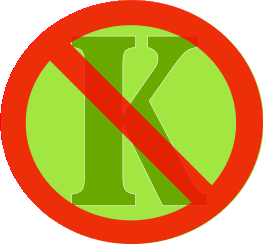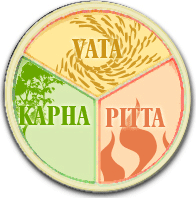PULSE HEALTH REMEDIES

Categories in Blood and CirculationTemperature SignsWater RegulationCirculationHeartLymph / Blood PlasmaRed Blood CellsImmune-SystemLiver & GallbladderAround EyesEyesTongue CoatingTongue Surface / CracksTongue BodyPulseOverviewDon't know your body type? Take our free Dosha quiz!
TAKE THE QUIZ
36 likes  SAVE SYMPTOM SAVE SYMPTOMA fast heartbeat could indicate stress, anxiety, dehydration, and heat. It is normally associated with Vata dosha and toxicity in the blood. If Kapha thick blood congests circulation too much, it could create panic attacks / anxiety related tachycardia.      (5.00 out of 5 stars) 1 rating, 24 likes (5.00 out of 5 stars) 1 rating, 24 likes SAVE SYMPTOM SAVE SYMPTOMA slow heartbeat is typical of athletes and people with a regular exercise routine. A slow heartbeat is also a sign of a cold condition. The heart's electrical system may have a problem. The vagus nerve may be overstimulated. Spices such as ginger and... 45 likes  SAVE SYMPTOM SAVE SYMPTOMAn irregular heartbeat is also known as arrhythmia. In some arrhythmias your heart beat speeds up and slows down, skips an occasional beat, or feels significantly different throughout the day. Some different types of arrhythhmias include: ... 2 likes  SAVE SYMPTOM SAVE SYMPTOMA wide vessel pulse reading indicates person is relaxed or warm, and blood vessels are dilated. 1 like  SAVE SYMPTOM SAVE SYMPTOMA sign of vasoconstriction or atherosclerosis. Indicates person is stressed, or cold. 1 like  SAVE SYMPTOM SAVE SYMPTOMAn empty vessel pulse could mean low blood pressure or dehydration. The vessel feels especially deflated between heartbeats. A wide pulse (due to vasodilation) sometimes feels more empty because blood pressure drops when vessels are dilated. 2 likes  SAVE SYMPTOM SAVE SYMPTOMA slippery pulse will feel like small beads rippling underneath the fingers when you check the pulse. It is a forceful, oily pulse, so a sign of heat and damp. It is common in pregnancy, blood congestion, and in a full (sthenic) fever. The dampness in... BLOOD AND CIRCULATION TIPS DISCLAIMER: The pathogenesis of each person's condition is unique, and so the diet must be fit to the individual and the unique root causes of the condition in your body. The information on this page is for educational purposes only and should not be used to treat a medical condition. It is not a substitute for medical care. Please check with your doctor before making any changes to your health and wellness routine. HOW AYURVEDA WORKSARE YOU WONDERING HOW AYURVEDA CAN HELP YOU?WHY IS AYURVEDA THE RIGHT SOLUTION?Ayurveda strengthens the body while opposing disorders. It takes a holistic, systemic approach that looks at the whole body. Ayurveda shows how to interpret signs and symptoms of imbalance, and how to address them using diet, lifestyle adjustments, and herbs. It shows a person how to optimize their health on a continual basis. You can't take the doctor home with you, but you can take Ayurveda home with you. Ayurveda is the most advanced and easy to use home system for self healing.HOW DOES AYURVEDA WORK?Ayurveda starts by identifying your body type, which identifies certain tendencies in your body to get sick (as well as identifying your strengths). It uses body type to determine the likely root causes of your disorders. Next, Ayurveda analyzes the nature of your disorder. It fits all your signs and symptoms into a pattern, expressed as a combination of biocharaceristics (gunas). For example, you may have a heat disorder, a cold disorder, or an oily disorder, etc. This simple categorical approach shows you how to correct systemic imbalances and strengthen your body as a whole.On Joyful Belly, we've created an extensive categorization of food so you can easily match food to your imbalanced biocharacteristics. By eating an optimal diet that balances your biocharacteristics, your whole body is strengthened and the conditions that created the disorder are removed. Once the root causes of the disease are removed, the disease lessens in strength or disappears altogether. Additional remedies - such as herbs and lifestyle practices - focused on the specific disorder, can greatly enhance your healing. GET STARTEDTo get started on your Ayurvedic journey, we first recommend that your find your body type by taking our free quiz. In Ayurveda, every solution is based on your unique body type, so by taking this quiz, you’ll get the best results. |
Join Joyful Belly.
Want our top Ayurvedic recipes and health tips?Subscribe to our free newsletter!












